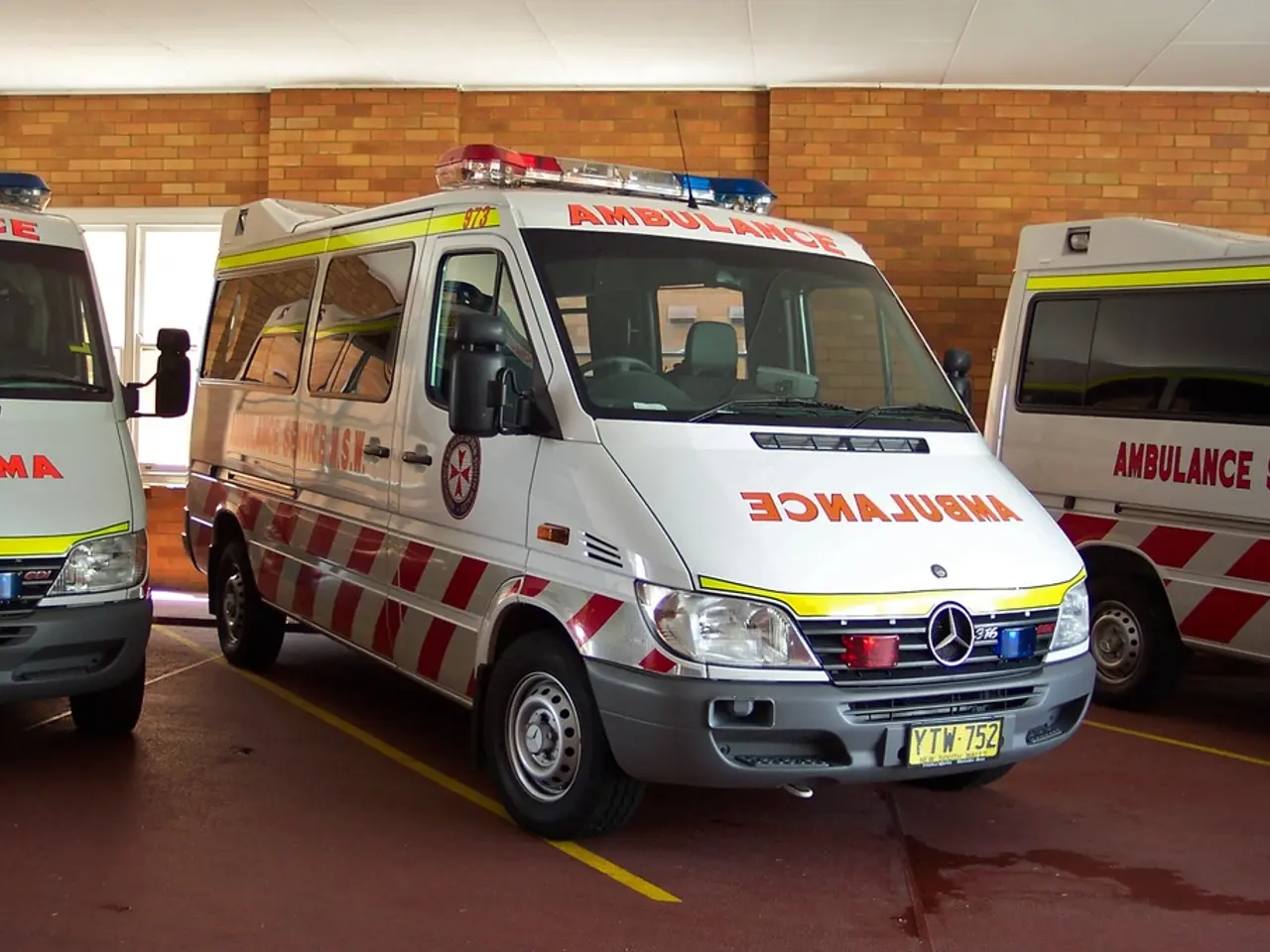UAE Commits $10 Million for Medical Aid Support in Gaza's Healthcare System
In the midst of a severe humanitarian crisis, the medical sector in Gaza remains in a dire state due to ongoing conflict and blockade conditions. Despite pledges of aid, such as the $10 million contribution from the Mohammed bin Rashid Al Maktoum Global Initiatives (MBRGI) to the World Health Organization (WHO), the healthcare system is severely strained.
Less than half of Gaza's hospitals are partially functional, and primary healthcare centers operate at only 39%, making access to essential health services extremely limited. The situation is critical, with acute malnutrition rates tripling and surpassing famine thresholds in several governorates. This exacerbates the healthcare crisis, particularly affecting children and pregnant women who face high risks of disease, malnutrition, and preventable deaths.
The WHO and other UN agencies stress the need for a sustainable ceasefire and unimpeded humanitarian access to support the rehabilitation and delivery of medical supplies and services. However, Israeli military actions have been described by UN experts as deliberate attacks against Gaza’s healthcare system, termed "medicide," resulting in extensive damage and loss of life among medical personnel and patients.
International efforts, such as the UK's medical evacuation scheme supported by WHO, aim to transport critically ill Gazan children for treatment abroad due to the collapse of local medical capabilities. Yet, the overall situation remains critical, with shortages of medicines, medical supplies, and safe working conditions for healthcare staff within Gaza itself.
The ongoing conflict has devastating impacts on Gaza's population. Thousands of Palestinians have been killed, and dozens of thousands injured in the Israeli attacks on the Gaza Strip. The UN reports that 85% of the population of Gaza is internally displaced amid acute shortages of food, clean water, and medicine.
The MBRGI's financial pledge is a vital contribution within the global humanitarian response, but Gaza’s medical sector continues to face catastrophic challenges, including hospital dysfunction, starvation, malnutrition, infrastructure destruction, and attacks on health workers. These challenges severely limit the effectiveness of aid and the ability to meet urgent medical needs.
The United Nations has not announced any plans to intervene in the conflict or to broker a peace agreement. The source of the displacement and the cause of the infrastructure damage remain unclear. The conflict in Gaza continues to have a devastating impact on its population, and urgent action is needed to address the crisis and ensure the delivery of essential healthcare services.
[1] WHO, "Health Cluster Annual Report 2023: Gaza," World Health Organization, 2023. [2] UN OCHA, "Gaza Health Sector: 735 Health Facilities Attacked Since 2023," United Nations Office for the Coordination of Humanitarian Affairs, 2025. [3] UNICEF, "Gaza: Crisis Deepens for Children as Health System Collapses," United Nations Children's Fund, 2023. [4] WHO, "Medical Evacuation Scheme for Gaza," World Health Organization, 2024. [5] OCHA, "Gaza: Humanitarian Crisis Deepens Amidst Ongoing Conflict," United Nations Office for the Coordination of Humanitarian Affairs, 2024.
Read also:
- Is it advisable to utilize your personal health insurance in a publicly-funded medical facility?
- Dietary strategies for IBS elimination: Aims and execution methods
- Benefits, suitable dosage, and safety considerations for utilizing pumpkin seed oil in treating an overactive bladder
- Harmful Medical Remedies: A Misguided Approach to Healing




